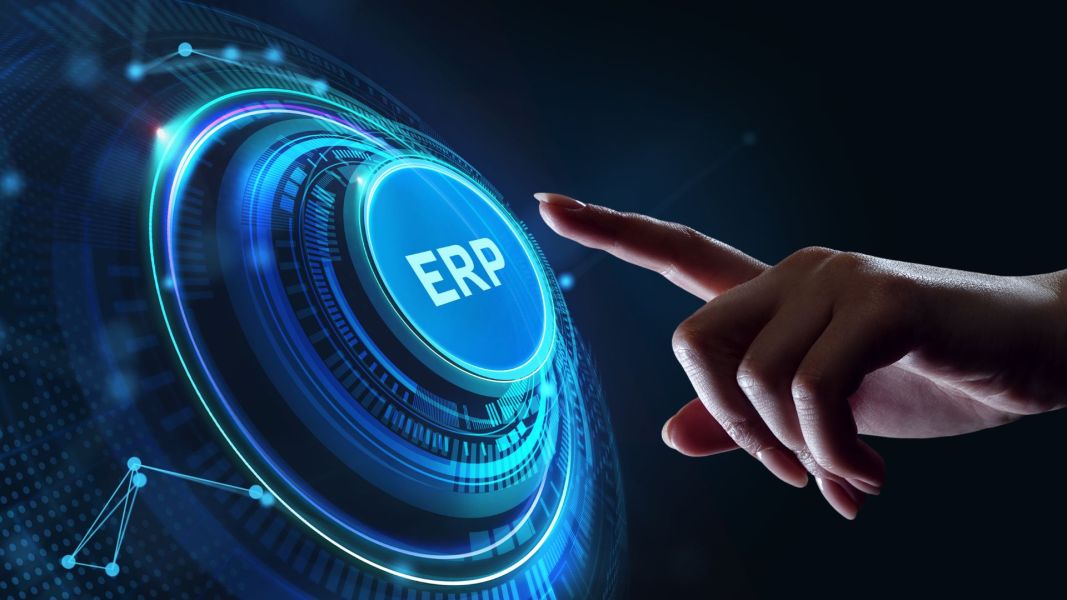In today’s business landscape, Enterprise Resource Planning (ERP) solutions play a role in enhancing efficiency and optimizing operations for companies of all types and sizes. Organizations allocate resources toward the deployment of these systems as they navigate the complexities of weighing the advantages and expenses associated with ERP integration.
By comprehending the implications and advantages tied to ERP implementation, businesses can make informed choices that align with their strategic objectives.

Exploring ERP Systems
Enterprise resource planning (ERP) systems bring together aspects of business operations into a structure. This consolidation encompasses finance management, managing resources, overseeing the supply chain, and handling customer relationships. Through the centralization of data, ERP solutions offer an overview of company activities, encouraging informed decision-making and enhanced communication.
The Initial Expenses of Implementing an ERP System
With ERP implementation, there are expenses to consider, such as purchasing or licensing software, which is a major cost factor in itself; further investments might be needed for hardware upgrades to accommodate the new system requirements along with customization costs, which tend to accumulate as companies often seek specialized features customized to their specific requirements.
Costs for Training and Help
It’s important to train employees on the ERP system since it helps them navigate the software effectively and efficiently. At the same time cost for ongoing support and maintenance increase due to the necessity of technical assistance for troubleshooting and updates.
The Possible Additional Expenses
During the process of implementing an ERP system, expenses may crop up unexpectedly. For instance, dealing with the complexities of migrating data may demand effort to guarantee a transition. Moreover, when employees resist changes, it could result in decreased productivity, thus requiring resources to implement strategies for managing change.
The Advantages of Long-Term Financial Planning
Despite the high costs involved in implementing ERP systems, they provide financial advantages in the long run by automating processes and cutting down on manual work, lowering operational expenses effectively and allowing for accurate data analysis to support strategic decision-making and identify ways to save costs across various departments effectively.
Heightened Improved Efficiency
Enterprise resource planning (ERP) systems enhance efficiency by simplifying processes and making work smoother for employees accessing information which helps in managing tasks efficiently facilitating improved inter department collaboration and breaking down data barriers to encourage teamwork.
Enhanced Ability to Make Better Decisions
Having access to data greatly improves decision-making skills for managers as they can make decisions based on current and accurate information available to them in real-time. This quick response to market fluctuations gives an advantage that helps drive business growth in the run.
Ensuring that customers are happy and coming back for more
Enterprise resource planning (ERP) systems are crucial in boosting customer happiness by enhancing order precision and delivery speed to meet customer needs efficiently and keep them loyal, for revenue growth through improved retention rates.
Enhancing scalability and adaptability
Enterprise resource planning (ERP) systems provide the flexibility to scale with businesses as they grow and evolve in size and complexity over time. They enable companies to adjust to changing market dynamics and new business paradigms, ensuring their competitiveness and longevity.
Tips for an Execution
To implement an ERP system effectively, it is crucial to plan and analyze needs involving stakeholders from different departments for collaboration and ensure that the system aligns with the organization’s objectives.
Choosing the Appropriate Supplier
Select the ERP vendor carefully as it plays a role in the process of decision-making for businesses highly dependent on factors like their industry expertise and customer service quality along with the capabilities of their systems to ensure an informed choice is made that benefits the organization’s needs and requirements adequately supported by a reliable vendor offering valuable advice and support during the implementation phase.
Post assessment Review
Evaluating the ERP system after implementation is crucial to determine its effectiveness. Testing performance indicators can point out areas that may need enhancements. Getting input from users helps in improving the system to meet changing business needs.
In Summary
Deciding to integrate an ERP system requires evaluation of both the expenses and advantages involved in the process. Even though the upfront costs may be substantial, the lasting benefits, in terms of improved efficiency, increased productivity and enhanced customer satisfaction justify it as an investment for businesses. By recognizing the obstacles and utilizing effective approaches organizations can effectively manage the implementation of ERP systems. This enhances their efficiency. Helps them gain a competitive advantage in the marketplace.

Founder Dinis Guarda
IntelligentHQ Your New Business Network.
IntelligentHQ is a Business network and an expert source for finance, capital markets and intelligence for thousands of global business professionals, startups, and companies.
We exist at the point of intersection between technology, social media, finance and innovation.
IntelligentHQ leverages innovation and scale of social digital technology, analytics, news, and distribution to create an unparalleled, full digital medium and social business networks spectrum.
IntelligentHQ is working hard, to become a trusted, and indispensable source of business news and analytics, within financial services and its associated supply chains and ecosystems


























